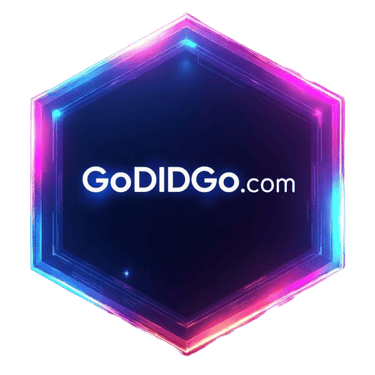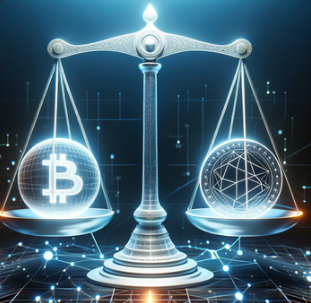Advanced decentralized finance
DAOs and Onchain Governance
godidgo.com
11/12/20243 min read


Decentralized finance (DeFi) represents a revolutionary shift in how financial systems operate, removing intermediaries and empowering individuals through blockchain technology. Among the most transformative components of DeFi are Decentralized Autonomous Organizations (DAOs) and onchain governance mechanisms. These innovations embody the principles of decentralization, enabling communities to collectively manage resources and make decisions in an open, transparent, and efficient manner.
In this article, we will explore the concepts of DAOs, their structure and applications, and the significance of onchain governance in shaping the future of decentralized systems.
What are DAOs?
Decentralized Autonomous Organizations, or DAOs, are blockchain-based entities governed by smart contracts rather than centralized authorities. The term "autonomous" highlights the fact that DAOs operate according to predefined rules encoded in smart contracts, which execute automatically when conditions are met.
The governance of a DAO typically involves token holders who collectively vote on proposals, ensuring that decisions are made democratically and transparently. Unlike traditional organizations, where power is concentrated in the hands of executives or boards, DAOs distribute power among all stakeholders.
Key features of DAOs
Transparency: All rules, transactions, and governance decisions are recorded on the blockchain, making them publicly accessible and verifiable
Decentralization: Power is distributed among participants, reducing the risk of corruption or mismanagement
Autonomy: Smart contracts automate operations, eliminating the need for intermediaries and ensuring trustless execution
Global Accessibility: DAOs are open to anyone with an internet connection and the required tokens, fostering inclusivity and broad participation.
Applications of DAOs
DAOs have rapidly gained traction across various industries. Here are some prominent use cases:
Investment and Venture Capital: DAOs like The DAO (one of the first such organizations) allow members to pool funds and collectively decide on investments
DeFi Protocol Governance: Major DeFi platforms like Uniswap and Aave use DAOs for protocol upgrades, parameter adjustments, and community decision-making
Creator Economies: Artists and creators use DAOs to manage royalties and community-driven projects, enabling fans to have a stake in the creative process
Social and Charitable Initiatives: DAOs facilitate community-driven funding and decision-making for social causes, ensuring that resources are allocated transparently
Gaming: DAOs are increasingly popular in blockchain-based gaming, enabling players to govern in-game economies and assets.
Understanding Onchain Governance
Onchain governance refers to the process of making decisions and implementing changes directly on the blockchain. In the context of DAOs, onchain governance allows token holders to propose, vote on, and execute decisions without relying on off-chain systems or intermediaries.
The importance of Onchain Governance
Decentralization and Inclusion: Onchain governance ensures that all stakeholders have a voice in decision-making. Every token holder, regardless of size, can participate in shaping the organization
Transparency: Proposals, voting results, and execution are recorded immutably on the blockchain, reducing opportunities for manipulation
Efficiency: By automating processes through smart contracts, onchain governance accelerates decision-making and execution
Adaptability: DAOs can evolve rapidly in response to changes in their ecosystem, such as regulatory requirements or market conditions.
Governance models
There are several approaches to onchain governance, depending on the DAO's structure and objectives:
Token-Based Voting: Governance power is proportional to the number of tokens a participant holds. While efficient, this model can lead to centralization if tokens are heavily concentrated
Quadratic Voting: Designed to balance voting power, quadratic voting reduces the influence of large token holders, giving smaller participants more voice
Reputation-Based Governance: This model assigns voting power based on participants’ contributions or activity within the DAO, rather than token ownership.
Challenges and criticisms
Despite their transformative potential, DAOs and onchain governance face several challenges:
Low Participation Rates: Many token holders do not actively participate in governance, which can lead to decisions being made by a small, engaged minority
Centralization Risks: Token-based voting can result in governance being dominated by large holders or whales
Complexity: For newcomers, understanding DAO mechanisms and governance processes can be daunting
Regulatory Uncertainty: Governments worldwide are still determining how to classify and regulate DAOs, creating potential risks for participants.
The future of DAOs and Onchain Governance
DAOs and onchain governance are still in their infancy, but their impact is already profound. As blockchain adoption grows, these mechanisms will play an increasingly critical role in fostering trust, efficiency, and inclusion in decentralized ecosystems.
In the coming years, we can expect innovations to address existing challenges, such as improved user interfaces for governance participation, hybrid governance models that combine token and reputation systems, and clearer regulatory frameworks. As DAOs mature, they could become the standard for organizing collective efforts, revolutionizing industries from finance to governance itself.
By democratizing decision-making and automating processes, DAOs and onchain governance represent a fundamental shift in how organizations and systems operate, offering a glimpse into a future defined by transparency, decentralization, and community empowerment.

Get in touch
Feel free to contact us to inquire about any of the Web2/DNS and Web3/Onchain domains showcased on our platform. We are open to receiving proposals and evaluating direct purchase offers for all the digital assets featured.
Our team is also available to explore tailored agreements and negotiated sales, ensuring a smooth and efficient acquisition process that aligns with your specific needs.
Connect with us to amplify your identity across both the Web2/DNS & Web3/Onchain landscape. Together, let's redefine the future of digital identities and brands.
Contact us now to elevate your DIDs & Brands to new heights, because in the world of Go DID Go! your Digital Identity is not just owned; it's celebrated!
Contact Us
info@godidgo.com




